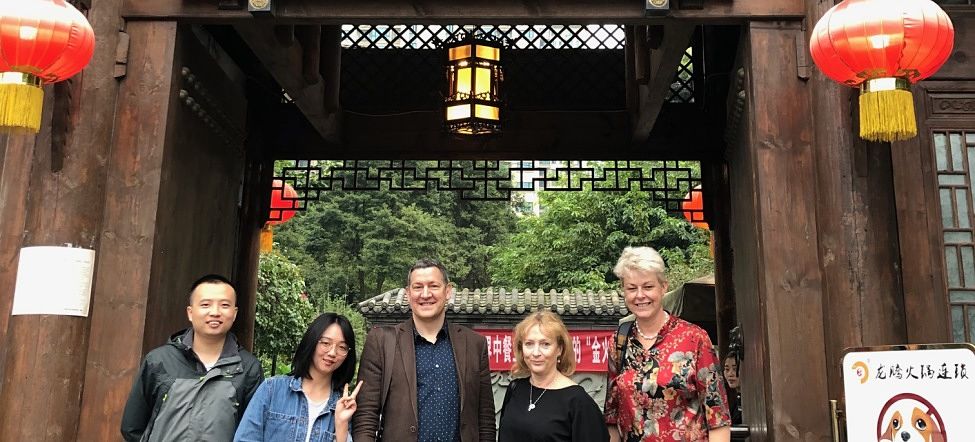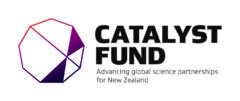Traditional Chinese medicine’s (TCM) potential to produce new pro-drugs targeting diseases such as cancer is being given a boost in one of several collaborations between University of Otago Pharmacy School researchers and their counterparts in China.
Pro-drugs are inactive when administered, but when they encounter the disease/target site they are triggered into activity. Otago School of Pharmacy’s Dr Allan Gamble, whose laboratory mainly focusses on targeted delivery of cancer drugs, says he initially spoke with Professor Bo Han of the Chengdu University of TCM’s School of Pharmacy during the First New Zealand-China Non-Communicable Disease Research Cooperation Forum in Queenstown in September about ideas their laboratories could work on together.
“Han’s team has identified some drug-like compounds from TCM. We want to see if we can take some of the compounds that his group has synthesised and make pro-drugs to target specific diseases.
“My lab is interested in improving the delivery of drugs to cancer cells. A big part of that is pro-drug development and finding triggers for activating pro-drugs. Also, with some of the compounds, Han’s team don’t know what the target is and, in my lab, we can try to find that out. To initiate the collaborative effort, a PhD student from Professor Bo’s research group will visit my lab for a year from December so we can synthesise a series of prodrugs targeting cancer cells and generate some useful biological data.
“The facilities in China are second to none and their researchers are first class. Collaborating with them will lead to further ideas and opportunities for funding in the hope that we find something with clinical potential.”
An Otago School of Pharmacy delegation to China in late October returned having confirmed further collaboration with colleagues from Chengdu University of TCM’s School of Pharmacy who also attended the Forum in September. The delegation included the Dean, Professor Marra, Professor Sarah Hook and Associate Professors Natalie Medlicott and Arlene McDowell.
Associate Professor McDowell says, “At the Forum, we established a genuine mutual desire to work together and identified many areas of potential research collaboration. In China, we began to refine the ideas down to specifics.
“The possibilities are for individual researchers to travel between our two countries to work together. We can also establish teaching exchanges, and postgraduate and undergraduate student exchanges. The Chinese academics really value that we are a well-reputed, research-intensive university with stringent ethics, in an English-speaking country.
“In Chengdu, I continued a discussion begun at the forum with Associate Professor Jinming Zhang around our common research interest in nanomedicines to delivery TCMs more efficiently. I agreed to host a Chengdu research student in my lab at Otago to look at designing a nanomedicine from plant extracts with antioxidant activity using a smart polymer system they have developed.
“The Chinese have a huge knowledge of plants and their uses, and the scale they can do things on is phenomenal, e.g. getting lots of people to do quality trials is so much easier. They also have all the commercial production facilities, so if we have a product that can safely be put to market, it can be produced pretty quickly.”
While in China, Associate Professor McDowell and Professor Hook, also spoke at the sixth International Conference on the Modernization of Traditional Chinese Medicine Conference in Chengdu.


